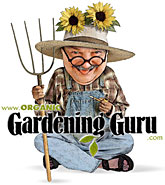Want to know where I’ve been? I’ll tell you: podcasting. Yes, the Manic has gone live, and it’s been a steep learning curve. Hence my utter absence from the blog.
The show is an hour a week on organic and sustainable gardening, (you can find it here) interviewing everyone from a neighbor to Linda Chalker-Scott, one of the esteemed Garden Professors and former science editor of the alas now defunct Master Gardener Magazine. No one’s safe: not the local organic potato farmer, not his wife, not a Bokashi blogger in Switzerland.
And yet, I like to pretend, at least to myself, that there is some sort of organization behind it all, or underneath. After a certain amount of delving, here are the five major foci I’ve unearthed:
How-tos:
This one’s a no-brainer: the nuts and bolts of organic gardening. How to set up a compost heap (or a worm farm, or a Bokashi operation); what each of those finished composts does or doesn’t provide in the soil; how to plant a vegetable garden (or a fruit tree, or a flower garden) to minimize diseases and pests; how to recognize and cope with problems; what parts of companion planting are based in reality and what in wishful thinking.
The big stuff:
At the other end of the scale, I want to deal with the wider issues related to organic practices: the research that ties pesticide exposure to both Parkinson’s and the rise in non-Hodgkin’s lymphomas, the dead zone in the Caribbean that’s largely caused by fertilizer run-off from the Mississippi, the manure lagoons that exist in part because animals in North America are treated with so many antibiotics and hormones that their manure can’t be used as fertilizer. Grrr.
Going organic:
As the bad news about pesticides and conventional farming spreads, plenty of gardeners and farmers would like to make their operations more sustainable. But many don’t know how to go about it. So what are some steps that a responsible grower can take? Check out “Steps Towards Sustainability,” in which I interview Jason Kimm, a conventional seed-potato farmer who isn’t so conventional any more.
Community action:
A lot of us would also like to see more sustainable practices established in our towns, neighborhoods, or counties, but it isn’t always obvious what can be done at a reasonable cost by busy people. So I plan to take a look at successful organic gardening organizations, institutes, and programs that might be useful models for the rest of us. (In “Big Bokashi,” up next week (Oct. 24), MJ Arendes and Michael Dalton talk about how they’ve set up large-scale Bokashi composting bins at food banks, schools, and other institutions.)
Garden Science:
And so we arrive at my last focus: the science of gardening. While writing my research articles for Eric Vinge of Planet Natural, I constantly found myself confronting bald statements of “fact,” unsupported by any actual facts. I’ve done enough bouncing around on the web to know how easily misinformation can be promulgated. And being of a naturally suspicious disposition, I want to see the research behind the claim. Assuming there are others out there as curious and skeptical as I am, I’m trying to get some real science into these shows.
Whew.
As you can imagine, it’s been a pretty wild. And I haven’t even mentioned all the stuff I’ve had to learn about microphones, recording programs and—oh boy—editing.
But that’s a different post.

 Subscribe to RSS feed
Subscribe to RSS feed



This is so interesting, so excited for you. I agree that we all need to learn more about organic gardening and the steps it takes to get there. I can also inform my dad too since he loves to garden and because of the language barrier.
I really have enjoyed your posts. I just launched a site about urban organic veggie gardening – so I can relate to many of your posts. Looking forward to your podcasts too.
I should know this, Karina, but which language? You’re right though, gardening crosses all such barriers.
Thanks, Carol. I did end up at your handsome site while I was scouting the topic. I’ll definitely check back in.
–Kate